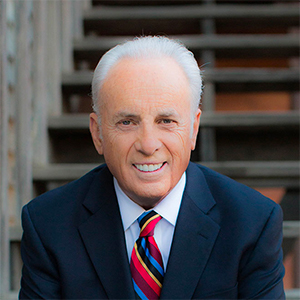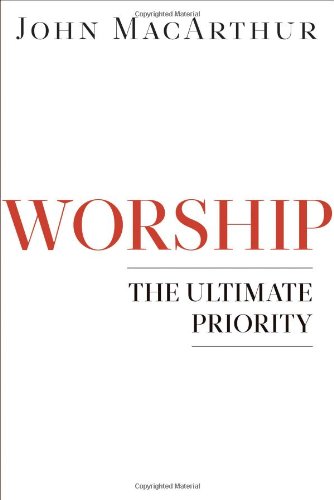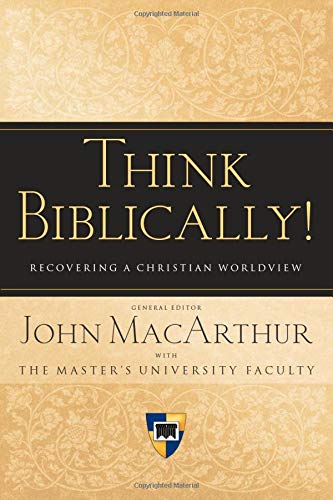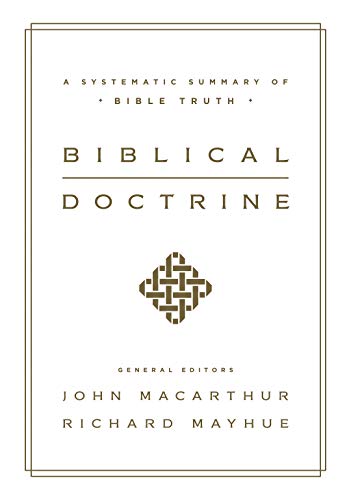
Quotes by John MacArthur
Even the good deeds unbelievers perform are not truly a fulfillment of God’s law, because they are produced by the flesh, for selfish reasons, and from a heart that is in rebellion.
If the Spirit of God is at work in your life, nothing will stop you from making this commitment. You have nothing to fear in telling someone that. You have nothing to fear in saying to someone, “I want you to think about this, I want you to consider the cost carefully.” You have nothing to fear. What you’re doing is stopping people from superficial, non-saving delusion. You’re backing them off and saying, let’s find out whether this is really the work of the Spirit of God and what is happening in your life is not a momentary, emotional thing, but what is happening in your life is the true, regenerating work of the Holy Spirit producing an unrelenting repentance and an undying faith that will go through every barrier. You do all the important things in life by calculating carefully. This is the most important thing you’ll ever do.
The Extreme Nature of True Discipleship – Part 2. The sermon originally appeared (https://www.gty.org/library/sermons-library/42-196/the-extreme-nature-of-true-discipleship-part-2) at www.gty.org. © 1969-2008. Grace to You. All rights reserved. Used by Permission.
Jesus is not offering a makeover. He’s calling for a takeover, very different from the easy kind of Christianity light that we’re so familiar with.
The Extreme Nature of True Discipleship – Part 2. The sermon originally appeared (https://www.gty.org/library/sermons-library/42-196/the-extreme-nature-of-true-discipleship-part-2) at www.gty.org. © 1969-2008. Grace to You. All rights reserved. Used by Permission.
The glory of God is the goal of redemption and the salvation of the sinner is the means to that… Only the people who understand that are the ones that understand what worship is really about.
Seven Characteristics of the Coming King. The sermon originally appeared (https://www.gty.org/library/sermons-library/42-226/seven-characteristics-of-the-coming-king-part-4) at www.gty.org. © 1969-2008. Grace to You. All rights reserved. Used by Permission.
What is a false religion? A false religion is any religion by any name that is not consistent with the gospel of Jesus Christ, whether it’s Islam, Buddhism, Hinduism or some aberrant kind of Christianity. All false religions agree on being anti-gospel. This is the greatest attack always on the truth.
Rejecting the King’s Authority. The sermon originally appeared (https://www.gty.org/library/sermons-library/42-244/rejecting-the-kings-authority) at www.gty.org. © 1969-2008. Grace to You. All rights reserved. Used by Permission.
All false religions have their own diversities, but all false religions agree in taking a position opposite the gospel of Jesus Christ.
Rejecting the King’s Authority. The sermon originally appeared (https://www.gty.org/library/sermons-library/42-244/rejecting-the-kings-authority) at www.gty.org. © 1969-2008. Grace to You. All rights reserved. Used by Permission.
[Jesus] is not under anyone but God, and He is in perfect agreement with God, as God. He has authority… He has absolute unilateral authority to do whatever He will, whenever He wills, with whomever or whatever He wills… Jesus never in His earthly life asked permission to do anything. Never. He never sought it from any normal channels in His ministry… No matter what it was, there was no authority to whom Jesus went. He quoted no rabbi. He had permission from no Sanhedrin. He had no rabbinical council to which He was answerable. He was not ordained in the appropriate way that all teachers and rabbis were ordained. And nor was His theology checked and signed off on by the Sanhedrin. And He teaches without any connection to any prior mentor or rabbi, and without credentials, and without ordination, which could only be given by the Sanhedrin. Jesus was His own authority. He spoke prophetically. He spoke truly. He rightly interpreted the Old Testament Scripture. He spoke the true Word of God. They even admitted that. He forgave sin. He healed sick people. He raised the dead. He cast out demons. And He did it without ever seeking permission from anyone.
Rejecting the King’s Authority. The sermon originally appeared (https://www.gty.org/library/sermons-library/42-244/rejecting-the-kings-authority) at www.gty.org. © 1969-2008. Grace to You. All rights reserved. Used by Permission.
Don’t ever think for one split second that Jesus came into the world to offer a kingdom to Israel without a cross and that somehow when the Jews rejected Him as King, He had to go and die on the cross. He never offered a kingdom without a cross. He was the Lamb slain from before the foundation of the world.
Sermon, Approaching the Cross with Determined Anticipation – part 2 (www.gty.org/Resources/issues/520) at www.gty.org. © 1969-2008. Grace to You. All rights reserved. Used by Permission.
[Jesus was] led to slaughter in the greatest act of injustice from a human standpoint ever enacted to achieve the greatest act of justice from a divine point ever accomplished.
Sermon, Approaching the Cross with Determined Anticipation – part 2 (www.gty.org/Resources/issues/520) at www.gty.org. © 1969-2008. Grace to You. All rights reserved. Used by Permission.
To say that God dwells in heaven is not to say that He is contained there. But it is uniquely His home, His center of operations, His command post. It is the place where His throne resides. And it is where the most perfect worship of Him occurs. It is in that sense that we say heaven is His dwelling – place.
No Earthly Idea About Heaven taken from The Glory of Heaven by John MacArthur, copyright 1996, Crossway Books, a division of Good News Publishers, Wheaton Illinois, 60187, www.crosswaybooks.org, page 56.
No matter how terrible they may be, the hardships and tragedies of human living that often befall Christians are not the crosses of which Jesus speaks. Such things as a cruel spouse, a rebellious child, a debilitating or terminal illness, the loss of a job, or destruction of a house by a tornado or flood, may strongly test a believer’s faith; but those are not crosses. The cross of a believer is not a mystical or spiritual identification with the cross of Christ or some “crucified life” idea. Such concepts are foreign to the context, and the cross of Christ was yet future when Jesus spoke here. The disciples would hear cross and think only of physical death. A cross is the willing sacrifice of everything one has, including life, for the sake of Christ. It is something that, like the Lord Himself, a believer must take on himself when it is thrust upon him by the unbelieving world because of his relationship to God.
Taking up one’s cross is not some mystical level of selfless “deeper spiritual life” that only the religious elite can hope to achieve. Nor is it the common trials and hardships that all persons experience sometime in life. A cross is not having an unsaved husband, nagging wife, or domineering mother-in-law. Nor is it having a physical handicap or suffering from an incurable disease. To take up one’s cross is simply to be willing to pay any price for Christ’s sake. It is the willingness to endure shame, embarrassment, reproach, rejection, persecution, and even martyrdom for His sake.
When the disciples and the crowd heard Jesus speak of taking up the cross, there was nothing mystical to them about the idea. They immediately pictured a poor, condemned soul walking along the road carrying (which is an accurate translation of airo, meaning “to raise, beat, or carry”) the instrument of his execution on his back. A man who took up his cross began his death march, carrying the very beam on which he would hang.
It’s as if you could see Jesus Christ going along the road to the cross, the Via Dolorosa moving to His own execution, bearing on His back the cross upon which He will bear the sins of all the world. And in His train, millions of people, all with their cross, willing to take His reproach. Glorious scene.
Offending Christ. The article originally appeared (http://www.gty.org/Resources/Sermons/2321) at www.gty.org. © 1969-2008. Grace to You. All rights reserved. Used by permission.
We must keep in mind that Jesus’ path to glory was marked by pain before pleasure, sorrow before joy, humiliation before glorification, persecution before exaltation, death before resurrection, earthly hatred before heavenly worship. To remember those truths about our Lord’s earthly life will protect us from the foolish and ungodly promises of the so-called health and wealth gospel, which vitiates His command to take up our crosses as He took up His.
The truth that humanity was made in the likeness of God is the starting point for a biblical understanding of the nature of man. It explains our spiritual urges. It helps us make sense of the human conscience. It establishes our moral accountability. It reveals the very essence of the meaning and purpose of human life. It is full of practical and doctrinal significance.
No human being…is ever conceived outside God’s will or ever conceived apart from God’s image. Life is a gift from God created in His own image.
The gospel according to Jesus is the gospel according to His apostles. It is a small gate and a narrow road. It is free but it costs everything. And though it is appropriated by faith, it cannot fail to produce the fruit of true righteousness in the life and behavior of the believer.
Since the Fall in the Garden of Eden, temptation has been a constant, unrelenting part of human life. Men have tried to avoid and resist it with self-inflicted pain to make themselves uncomfortable and presumably humble, or by isolating themselves from other people and from physical comforts. But no person has ever found a place or a circumstance that can make him safe from temptation.
That is God’s plan and purpose – to use Satan’s temptations as a means of testing and strengthening our faith in Him and of our growing stronger in righteousness. God allows testings in our lives in order that our spiritual “muscles” may be exercised and strengthened. Whether the testing is by God’s initiative or is sent by Satan, God will always use it to produce good in us when we meet the test in His power.
Temptations that have been anticipated, guarded against, and prayed about have little power to harm us. Jesus tells us to “keep watching and praying, that you may not come into temptation” (Mark 14:38). Victory over temptation comes from being constantly prepared for it, which, in turn, comes from constantly relying on the Lord.
Every temptation, directly or indirectly, is the temptation to doubt and distrust God.
The Word, watchfulness, prayerfulness. That’s it. No magic. That’s how you deal with [temptation]. Pour the Word in. Stay alert. Understand what’s going on around you by way of temptation. Be discerning and fall prostrate before God and cry out for His power. That’s the path to triumph. Then you can rise and walk to face the foe as [Jesus] did [in Gethsemane].
Man of Sorrows-Part 1. The article originally appeared (http://www.gty.org/Resources/Sermons/80-158) at www.gty.org. © 1969-2008. Grace to You. All rights reserved. Used by permission.
The end of the Old Covenant came as He promised. God dramatized it marvelously with one great climatic event, which occurred when Jesus died on the cross. The veil of the Temple was torn from the top to the bottom, signifying that God had ended the whole system. The Holy of Holies was exposed. Access to God was open to all. The shadows gave way to the substance. And just to make sure no one was confused about the old system, in A.D. 70 God allowed Jerusalem and the Temple to be destroyed. It has never been rebuilt.
If Jesus, the sinless and perfect Son of God, limited Himself to speaking nothing during His incarnation except the truth He received from His Father, how much more should those who have been called into ministry speak only on the authority of divine Scripture.
I think it is the preacher’s responsibility to get attention and comprehension. It is the Holy Spirit’s responsibility to produce yielding, retention, and action – that’s not my job. All the slick techniques, all the gospel marketing packages, all the pulpit histrionics of jumping and stomping and flailing around, and doing whatever they do to create the mood. All the sad stories, the mood music, the endless invitations, the hand raising, the walking to the front, all of that kind of pressure is not preaching the Word. It has nothing to do with comprehension. The decision of yielding, surrendering and then retaining and acting, is between the hearer and God, and not the hearer and the preacher.
Self-esteemism is based on an unbiblical perspective. It is diametrically opposed to the truth of human depravity. Moreover, while Scripture commends self-control as a fruit of the Spirit, the Bible has nothing positive to say about self-esteem, self-love, or any other variety of self-centeredness.
The self-esteem cult that goes around saying we’ve got to build up people’s self-esteem is taking them the opposite way that the message of the Bible does because the more you love yourself, the less likely you are to need a Savior.
Offending Christ. The article originally appeared (http://www.gty.org/Resources/Sermons/2321) at www.gty.org. © 1969-2008. Grace to You. All rights reserved. Used by permission.
The same suffering that reveals our weaknesses reveals God’s strength, “for power is perfected in weakness” (2 Cor. 12:9). When we are least effective in our human strength and have only God’s power to sustain us, then we are suitable channels through which His power flows. And so we should praise God for adversity because that’s when His power is most evident in our lives. There is no one too weak to be powerful, but there are many too strong.
Sufficient Grace from Our Sufficiency in Christ, 1991, Crossway Books, a division of Good News Publishers, Wheaton Illinois 60187, www.crosswaybooks.org. p. 250.
When we move from the physical to the spiritual realm, fixed laws still exist. We cannot exist without laws in the moral and the spiritual dimension of life any more than we can do so in the physical dimension. Our Creator built morality into life. Just as there are physical laws, so there are spiritual laws….The same God who controls the physical world by fixed laws controls the moral and spiritual world.
It’s amazing how people can affirm that God is a God of order and absolute precision in everything He does in the natural world, yet believe He unconcerned about the moral world. The scientist in the laboratory operates on the basis that his chemical mixtures are not going to violate a known truth and blow the building to bits. The astronauts who blast off into space count on the absolute immutability and accuracy of scientific laws. If God is a God of law and order in the natural realm, He’s not going to say, ‘Oh, just do your own thing. Believe anything you want.’ Such inconsistency is absurd!
Many people…do not want absolutes in doctrine and ethics, simply because absolute truths and standards demand absolute acceptance and obedience.
Love’s question is never who to love – because we are to love everyone – but only how to love most helpfully. We are not to love merely in terms of feeling but in terms of service. God’s love embraces the entire world (John 3:16), and He loved each of us even while we were still sinners and His enemies (Rom. 5:8-10). Those who refuse to trust in God are His enemies; but He is not theirs. In the same way, we are not to be enemies of those who may be enemies to us. From their perspective, we are their enemies; but from our perspective, they should be our neighbors.
We are His servants, not He ours. He has called us to live lives of loving service and worship, not godlike supremacy. He blesses us, but not always materially. In no way can we “write our own ticket” and expect Him to follow our script – nor should any real believer even desire such a scenario. The life of the Christian is a life spent in pursuit of God’s will – not a strategy to get Him to go along with ours. No one who rejects that fundamental truth can genuinely live unto God’s glory.
Does the Bible Prohibit Cremation?
1. Scripture says nothing about a required mode of burial for either believers or non-believers. However, burying the body was the standard practice among the Israelites in the Old Testament and Christians in the New (exceptions: 1 Sam. 31:8-13; Jos. 7:25).
2. Obviously any buried body will eventually decompose (Ecc. 12:7). So cremation isn’t a strange or wrong practice – it merely accelerates the natural process of oxidation.
3. The believer will one day receive a new body (1 Cor. 15:42-49; 1 Thes. 4:13-18; Job 19:25-26), thus the state of what remains of the old body is unimportant.
4. The imagery of Christ’s resurrection pictures burial and then a raising up from the dead (Rom. 6:3-5; 1 Cor. 15:3-4). Because of that, many Christians prefer burial to cremation to maintain a likeness to Christ’s burial (although literally He was laid in state in a cave, not buried in the ground).
Adapted from: Does the Bible Prohibit Cremation? The article originally appeared (www.gty.org/Resources/issues/2210) at www.gty.org. © 1969-2008. Grace to You. All rights reserved. Used by permission.
Reform is no answer for a culture like ours. Redemption is what is needed, and that occurs at the individual, not societal level. The church needs to get back to the real task to which we are called: evangelizing the lost. Only when multitudes of individuals in our society turn to Christ will society itself experience any significant transformation.
We must repudiate our confused loyalties and concerns for the passing world and put aside our misguided efforts to change culture externally. To allow our thoughts, plans, time, money, and energy to be spent trying to make a superficially Christian America, or to put a veneer of morality over the world, is to distort the gospel, misconstrue our divine calling, and squander our God-given resources. We must not weaken our spiritual mission, obscure our priority of proclaiming the gospel of salvation, or become confused about our spiritual citizenship, loyalties and obligations. We are to change society, but by faithfully proclaiming the gospel, which changes lives on the inside.
Godly character is not the result of good intentions, wishful thinking, some mystical “zap,” or even sheer Bible knowledge. It’s developed through the self-disciplined application of God’s Word at a very basic level, enabled and empowered by God’s Spirit.
Why is discipline important? Discipline teaches us to operate by principle rather than desire. Saying no to our impulses (even the ones that are not inherently sinful) puts us in control of our appetites rather than vice versa. It deposes our lust and permits truth, virtue, and integrity to rule our minds instead.
The present benefit of spiritual discipline is a fulfilled, God-blessed, fruitful, and useful life. If you get involved in spiritual gymnastics, the blessings of godliness will carry on into eternity. Although many people spend far more time exercising their bodies than their souls, the excellent servant of Jesus Christ realizes that spiritual discipline is a priority.
The Father and Son have sought to redeem us that we may become worshipers. Jesus said that the Son of Man came into the world to seek and to save that which was lost (Luke 19:10). In John 4 he reveals the purpose for His seeking: “For such people the Father seeks to be His worshiper” (vs. 23). The Father sent Christ to seek and save for the specific purpose of producing worshiping people.
The supreme motive in our redemption is not for us to receive anything. Rather, we have been redeemed so that God may receive worship – so that our lives might glorify Him. Any personal blessing for us is a divine response to the fulfillment of that supreme purpose… We are to seek to glorify God before we seek to gain anything from Him. To be concerned primarily with the blessings is to experience salvation in a shallow, self-centered manner.
How did the early Church ever function without the “expertise” we have today? Yet those Christians turned the world upside down (Acts 17:6), and they did it without any celebrity testimonies, without modern management techniques, without psychotherapy, without mass media, and without most of the means the contemporary church seems to view as essential. All they had was God’s Word and the power of His Spirit, but they knew that was sufficient.
Bible-Believing Doubters from Our Sufficiency in Christ, 1991, Crossway Books, a division of Good News Publishers, Wheaton Illinois 60187, www.crosswaybooks.org. p. 122.
Even though [the Bible] is an ancient document, every person in every situation in every society that’s ever existed can find in this book things that endure forever. Here’s a book that never needs another edition. It never needs to be edited, never has to be updated, is never out of date or obsolete. It speaks to us as pointedly and directly as it ever has to anyone in any century since it was written. It’s so pure that it lasts forever.
As a general rule, parents who follow biblical principles in bringing up their children will see a positive effect on the character of their children. From a purely statistical point of view, children who grow up in Christ-honoring homes are more likely to remain faithful to Christ in adulthood than kids growing up in homes where the parents dishonor the Lord. The truism of Proverbs 22:6 does apply. We’re certainly not to think that God’s sovereignty in salvation means the way we raise our kids is immaterial. God often uses faithful parents as instruments in the salvation of children.
Your top-priority job as a parent, then, is to be an evangelist in your home. You need to teach your children the law of God; teach them the gospel of divine grace; show them their need for a Savior; and point them to Jesus Christ as the only One who can save them. If they grow up without a keen awareness of their need for salvation, you as a parent will have failed in your primary task as their spiritual leader.
In an authentic spiritual experience, emotion, feelings, and the senses often become intense, transcending the normal. These may include strong feelings of remorse over sin, a mighty sense of trust that surpasses the pain of a traumatic situation, an overpowering peace in the midst of trouble, the overwhelming sense of joy related to confidence and hope in God, intense sorrow over the lost, the exhilarating praise in understanding the glory of God, or a heightened zeal for ministry. Spiritual experience by definition is an internal awareness that involves strong emotion in response to the truth of God’s Word, amplified by the Holy Spirit and applied by Him to us personally.
One expression in Titus 2 deserves special notice. It is the word homemakers. The Greek word is oikourgous, which literally means “workers at home.” Oikos is the Greek word for “home,” and ergon means “work, employment.” It suggests that a married woman’s first duty is to her own family, in her own household. Managing her own home should be her primary employment, her first task, her most important job, and her true career.
Mothers, don’t let anyone ever dupe you into thinking there’s anything ignoble or disgraceful about remaining at home and raising your family. Don’t buy the lie that you’re repressed if you’re a worker in the home instead of in the world’s workplace. Devoting yourself fully to your role as wife and mother is not repression; it is true liberation. Multitudes of women have bought the world’s lie, put on a suit, picked up a briefcase, dropped their children off for someone else to raise, and gone into the workplace, only to realize after fifteen years that they and their children have a hollow void in their hearts. Many such career women now say they wish they had devoted themselves to motherhood and the home instead.
Our enemies are demonic, but the warfare against them isn’t waged by commanding them, mapping their physical location, invoking magic words to subdue them, claiming authority over them, or any of the other common tactics some people usually refer to as “spiritual warfare.” We are not fighting demons in a face-to-face confrontation, or by spirit-to-spirit conversation, or with voice-to-voice communication. We attack them by tearing down their fortresses of lies… What, precisely, are our weapons? The only power that will destroy such things is the power of truth…“the sword of the Spirit, which is the word of God” (Eph. 6:17).
The simple fact is that you can’t fight spiritual warfare with magic phrases and secret words. You don’t overpower demons merely by shouting at them. I don’t have anything to say to a demon anyway. I’m not interested in talking to them. Let the Lord do that (cf. Jude 9). Why would I even want to communicate with evil spirits? But I have a lot to say to people who have barricaded themselves in fortresses of demonic lies. I want to do everything I can to tear down those palaces of lies. And the only thing that equips me to do that well is the Word of God. Spiritual warfare is all about demolishing evil lies with the truth. Use the authority of God’s Word and the power of the gospel to give people the truth. That is what will pull down the fortresses of falsehood. That is the real nature of spiritual warfare.
There’s no need for Christians to seek to engage Satan in combat. Nowhere in Scripture are we ever encouraged to do so.
Spiritual Warfare: Who’s After Whom? from Our Sufficiency in Christ, 1991, Crossway Books, a division of Good News Publishers, Wheaton Illinois 60187, www.crosswaybooks.org. p. 215.
Satan and his demons never, never act against God’s people without the permission of God. And when God gives them permission, He always uses their work to accomplish some divine purpose. Often, to exalt the power of God and prove the devotion of His followers, God permits Satan to work the hardest on the noblest servants of God.
Spiritual Warfare: Who’s After Whom? from Our Sufficiency in Christ, 1991, Crossway Books, a division of Good News Publishers, Wheaton Illinois 60187, www.crosswaybooks.org. p. 230.
This is not a complex battle plan: Submit to God and resist the devil [James 4:7]. How? By being firm in the faith, committed to truth, and keeping a clear conscience. What will Satan’s response be? “He will flee from you.” That is the only statement in all the New Testament that tells us how to get rid of Satan. There are no biblical guidelines for exorcism. There is no more elaborate strategy for spiritual warfare. There is nothing in Scripture that tells a believer to speak to demons, cast them out, bind them, tie them up, or do anything like that.
Spiritual Warfare: Who’s After Whom? from Our Sufficiency in Christ, 1991, Crossway Books, a division of Good News Publishers, Wheaton Illinois 60187, www.crosswaybooks.org. p. 235.
Remember that even Jesus’ most scathing denunciation – a blistering diatribe against the religious leaders of Jerusalem in Matthew 23 – ends with Christ weeping over Jerusalem (v. 37). Compassion colored everything He did.
It is clear that divorce is like a person cutting off an arm or leg because he has a splinter in it. Instead of dealing with whatever trouble arises between a husband and wife, divorce tries to solve the problem by destroying the union. On a deeper level, divorce destroys a union that God Himself has made. That is why Jesus said unequivocally, “What therefore God has joined together, let no man separate” (Matt. 19:6). The union of marriage is one which God, as its Creator, never desires to be broken. Divorce is a denial of His will and a destruction of His work.
The condition “except for unchastity” (Matt. 5:32) is not a way out that God provides, but is the grounds for divorce that He will recognize.
If God permitted divorce rather than death as a merciful concession to man’s sinfulness, why would He not also permit remarriage, since remarriage would be perfectly allowable under the original law of death for the adulterer? After all, the purpose of divorce was to show mercy to the guilty party, not to sentence the innocent party to a life of loneliness and misery.
Divorce was never commanded, even for adultery. Otherwise God would have given His notice of divorce to Israel and Judah long before He did. A legitimate bill of divorce was allowable for adultery, but it was never commanded or required. It was a last resort – to be used only when unrepentant immorality had exhausted the patience of the innocent spouse, and the guilty one would not be restored.
There are basically only two kinds of religion in the world: those based on human achievement and those based on divine accomplishment. One says you can earn your way to heaven; the other says you must trust in Jesus Christ alone.
One of the Old Testament names of God is El Shaddai, meaning “the All-Sufficient One.” It is a name rich with meaning. Those who worship Him in Spirit and in truth find Him adequate for every necessity of life. They do not need any supplementary experience, a stronger dose of His redemption, or any other spiritual or emotional accoutrements. God has given to every believer abundant grace that is utterly sufficient to fulfill our deepest longings, our most intense cravings, our most profound needs – every human requirement.
Epilogue: Perfect Sufficiency from Our Sufficiency in Christ, 1991, Crossway Books, a division of Good News Publishers, Wheaton Illinois 60187, www.crosswaybooks.org. p. 261.
Perhaps the saddest observation of all is that the spending habits of people in the church differ little from those of the world. The lifestyles of most professing Christians are not substantially different from anyone else’s. Too many in the church have adopted the world’s indulgent attitude toward money. Almost every form of materialistic extravagance and excess has found its way into the fellowship of believers. It is as if the church has forgotten Jesus’ mandate to invest in eternity.
Acknowledging [Jesus] as Lord by obeying Him…in no way establishes a gospel of human works. Notice that it is the Holy Spirit who enables a person to confess Jesus as Lord: “No one can say, ‘Jesus is Lord,’ except by the Holy Spirit” (1 Cor. 12:3).
He is Lord, and those who refuse Him as Lord cannot use Him as Savior. Everyone who receives Him must surrender to His authority, for to say we receive Christ when in fact we reject His right to reign over us is utter absurdity. It is a futile attempt to hold onto sin with one hand and take Jesus with the other. What kind of salvation is it if we are left in bondage to sin?
The question in salvation is not whether Jesus is Lord, but whether we are submissive to His lordship.
Contrary to what is taught in some evangelical circles today, there simply is no such thing as trusting Christ as Savior without at the same moment submitting to Him as Lord. Whereas the believer was once under the lordship of Satan, through saving faith he eagerly places himself under the lordship of Jesus Christ. Whereas he was once the enemy of God and the slave of sin, he is now the loyal subject of his Lord and Master.
There is a true sense in which you must teach your children to fear God, and especially to fear His displeasure. You have not satisfied the responsibilities of parenthood when you have made your child submit to you. If you are consistent and firm in your discipline, your child may obey you because he or she fears violating your standards. That is a fairly easy thing to achieve. But it is not the proper goal of biblical parenting. Your child should fear violating God’s standard, not merely yours. You are only an intermediary with the responsibility of teaching your child to fear God. If your children grow up fearing only your displeasure but not God’s, what will they do when you are not there?
Kids…need to learn that the root issue is their sin, and they need to be taught the remedy for their sin. Chastisement is not for the benefit of frustrated parents. It’s supposed to be for the benefit of the child. And in order to get the full benefit, they need to understand that the real problem is their sin – sin that offends God.
A righteous identity must issue in righteousness behavior. Such behavior is the outward manifestation of the inward transformation, and it is the only sure proof that such transformation has taken place.
Nowhere does Scripture encourage us to have an angel-fetish, or to look for evidence of angels in everyday life… [Furthermore] biblical appearances of angels – unlike those of popular lore – often cause trauma and great fear (Matt. 28:4; Luke 1:29; 2:9).
The Heavenly Host taken from The Glory of Heaven by John MacArthur, copyright 1996, Crossway Books, a division of Good News Publishers, Wheaton Illinios,60187, www.crosswaybooks.org, page 150, 160.
I have no doubt that some who claim to commune with angels really have been able to establish a link with angelic beings – though not in the way they seek. Scripture warns us plainly that Satan and his messengers often appear as angels of light (2 Cor. 11:13-15). In other words, demonic beings take advantage of the gullibility of people who are actively seeking to communicate with the spirit world. “Angelmania” turns out to be sheer occultism, with all its horrible effects. Many people have been drawn into serious demonic bondage by these practices, and Christians should be strongly warned against them.
The Heavenly Host taken from The Glory of Heaven by John MacArthur, copyright 1996, Crossway Books, a division of Good News Publishers, Wheaton Illinios,60187, www.crosswaybooks.org, page 149-150.
Angels – like all other intelligent creatures – were designed to render worship to God, not to receive worship themselves. In fact, in every case in Scripture, whenever angels are offered any form of worship, they always rebuke the worshiper and redirect all worship to God alone (cf. Rev. 19:10; 22:8-9).
The Heavenly Host taken from The Glory of Heaven by John MacArthur, copyright 1996, Crossway Books, a division of Good News Publishers, Wheaton Illinios,60187, www.crosswaybooks.org, page 152.
You are certainly not to order your life according to your feelings. A conscience fixed on feelings becomes unreliable. If you are subject to depression and melancholy, you of all people should not allow your conscience to be informed by your feelings. Despondent feelings will provoke unnecessary doubts and fears in the soul when not kept in check by a well-advised conscience. The conscience must be persuaded by God’s Word, not by your feelings.
Keeping a Pure Conscience, The article originally appeared (www.gty.org/Resources/Articles/23) at www.gty.org. © 1969-2008. Grace to You. All rights reserved. Used by permission.
Feelings are a poor foundation for marriage, but they can be a wonderful, glorious by-product.
Unless those who claim to be God’s spokesmen give evidence that their deepest motives and life patterns are to honor, glory, and magnify God, and to grow in humility, holiness, and obedience, we can be sure that God has not called or sent them. If they are orientated to money, prestige, recognition, popularity, power, sexual looseness, and selfishness, they do not belong to Jesus Christ. If they are proud arrogant, resentful, egotistical, and self-indulgent, they clearly are false prophets. The true test a beatitude attitude of humility.
No person, no matter how clever and deceitful, can indefinitely hide a character that is rotten and out of tune with God. John Calvin said, "Nothing is more difficult to counterfeit than virtue." It demands too much. It demands more than any person has in himself, and when God’s divine provision and power are absent the charade cannot last long.
The teaching of a false prophet cannot withstand scrutiny under the divine light of Scripture.
Fruit-bearing is not a matter of being strong or weak, good or bad, brave or cowardly, clever or foolish, experienced or inexperienced. Whatever your gifts, accomplishments, or virtues, they cannot produce fruit if you are detached from Jesus Christ. Christians who think they are bearing fruit apart from the Vine are only tying on artificial fruit. They run around grunting and groaning to produce fruit but accomplish nothing. Fruit is borne not by trying, but by abiding.
Salvation is not verified by a past act, but by present fruitfulness.
Bearing fruit is not a function added to a plant but is an integral part of its design and purpose. Even before it is planted, a seed contains the genetic structure for producing its own kind of fruit. When a person is born again through saving faith and is given a new nature by God, he is given the genetic structure, as it were, for producing moral and spiritual good works.
Mary’s virginity protected a great deal more than her own moral character, reputation, and the legitimacy of Jesus’ birth. It protected the nature of the divine Son of God… Jesus had to have one human parent or He could not have been human, and thereby a partaker of our flesh. But He also had to have divine parentage of He could not have made a sinless and perfect sacrifice on our behalf.
To put it simply, leadership is influence. The ideal leader is someone whose life and character motivate people to follow. The best kind of leadership derives its authority first from the force of a righteous example, and not merely from the power of prestige, personality, or position. By contrast, much of the world’s “leadership” is nothing but manipulation of people by threats and rewards. That is not true leadership; it’s exploitation. Real leadership seeks to motivate people from the inside, by an appeal to the heart, not by external pressure and coercion.
The effectiveness of leadership is measured in terms of influence. When you see someone’s influence reflected so profoundly in the lives of other people, you have identified someone who is by definition a leader.
True leadership is tested and proved in crises. The real leader is the one who can handle the stress. He is the one who can solve the problems, bear the burdens, find the solutions, and win the victories when everyone else is merely flustered, confounded, and perplexed.
People who are not inquisitive simply don’t make good leaders. Curiosity is crucial to leadership. People who are content with what they don’t know, happy to remain ignorant about what they don’t understand, complacent about what they haven’t analyzed, and comfortable living with problems they haven’t solved – such people cannot lead. Leaders need to have an insatiable curiosity. They need to be people who are hungry to find answers. Knowledge is power. Whoever has the information has the lead. If you want to find a leader, look for someone who is asking the right questions and genuinely looking for answers.
The standard for worldly leadership is to accomplish the leader’s desires through people. In the church, pastors have the privilege of seeing things God desires done in people.
The sword of the Spirit is first of all a defensive weapon, capable of deflecting the blows of an opponent. It is the believer’s supreme weapon of defense against the onslaughts of Satan. Unlike the shield, however, which gives broad and general protection, the sword can deflect an attack only if it is handled precisely and skillfully. It must parry the enemy weapon exactly where the thrust is made. When Jesus was tempted by Satan in the wilderness, His defense for each temptation was a passage of Scripture that precisely contradicted the devil’s word (Matt. 4:4, 7, 10). The Christian who does not know God’s Word well cannot use it well. Satan will invariably find out where we are ignorant or confused and attack us there. Scripture is not a broadsword (rhomphaia) to be waved indiscriminately, but a dagger to be used with great precision.
Parents, take inventory in your own hearts. Do you thirst for God as the deer pants after the water? Or is your own life sending your children a message of hypocrisy and spiritual indifference? Is our own commitment to Christ what you hope to see in your children’s lives? Is your obedience to His Word the same kind of submission you long to see from your own kids? These are crucial question each parent must face if we really want to be successful parents and good role models for our children. Parents who are lax in these areas virtually guarantee that their sons and daughters will fail spiritually.
In many ways, the attitude of obedience is much more vital than the act, because if the attitude is right, the act will naturally follow. But the right action with the wrong attitude is nothing but hypocrisy.
Our need is not to prove God’s faithfulness but to demonstrate our own, by trusting Him both to determine and to supply our needs according to His will.
In serious situations an oath is permissible to give greater motivation to tell the truth or to keep a pledge (i.e. marriage).
Any oath calling on God invites Him to witness the truthfulness of what is said or to avenge if it a lie.
The Bible does not forbid taking oaths, acknowledging that in a world filled with liars there are times when they are necessary. Certainly it is not wrong to take an oath when testifying in court, being ordained, or getting married. Oaths are wrong when they are misused with the intent to deceive others, or when taken rashly or flippantly. The Bible gives examples of godly men who took oaths, lists God’s commandments that oaths be taken, and records instances of God Himself taking oaths.
Jesus nor James prohibits swearing oaths under special circumstances. But under normal circumstances they are superfluous for the believer, who is marked by honesty.
Humanism is the philosophy that says humanity has unlimited potential. Give people enough time and education, and they can solve any problem. A stepsister to existentialism, humanism urges everyone to self-authenticate, to be someone.
The church is not a building made with stone. It is a building made with living flesh. We believers are living stones in God’s temple (1 Pet. 2:5), and when we come together we constitute a place of worship where God manifests Himself in ways that He cannot manifest Himself when we are alone. Believers become the living temple of God, offering to Him spiritual sacrifices not possible anywhere other than in the assembly of the redeemed church.
The source of most of the problems people have in their Christian lives relates to two things: either they are not worshiping six days a week with their life, or they are not worshiping one day a week with the assembly of the saints. We need both.
So the crucial factor in worship in the church is not the form of worship, but the state of the hearts of the saints. If our corporate worship isn’t the expression of our individual worshiping lives, it is unacceptable. If you think you can live anyway you want and then go to church on Sunday morning and turn on worship with the saints, you’re wrong.
Real, meaningful worship with God’s people is not optional. It’s not a suggestion. It’s not a take-it-or-leave-it proposition. Worship on the Lord’s Day should be the crowning joy of our week. It’s our opportunity to engage our minds toward God. To enjoy His people. To bask in His presence. To corporately drink from His Word. To give of our talents and resources. To encourage and to be encouraged. To offer praise.
The person who refuses to compromise under any and every circumstance is obstinate, unreasonable, and selfish. That sort of strong-willed inflexibility is sinful and has been the ruin of many relationships and organizations. But when it comes to matters of principle – moral and ethical foundations, biblical absolutes, the axioms of God’s Word, God’s clear commands, and the truthfulness of God Himself- it is never right to compromise.








